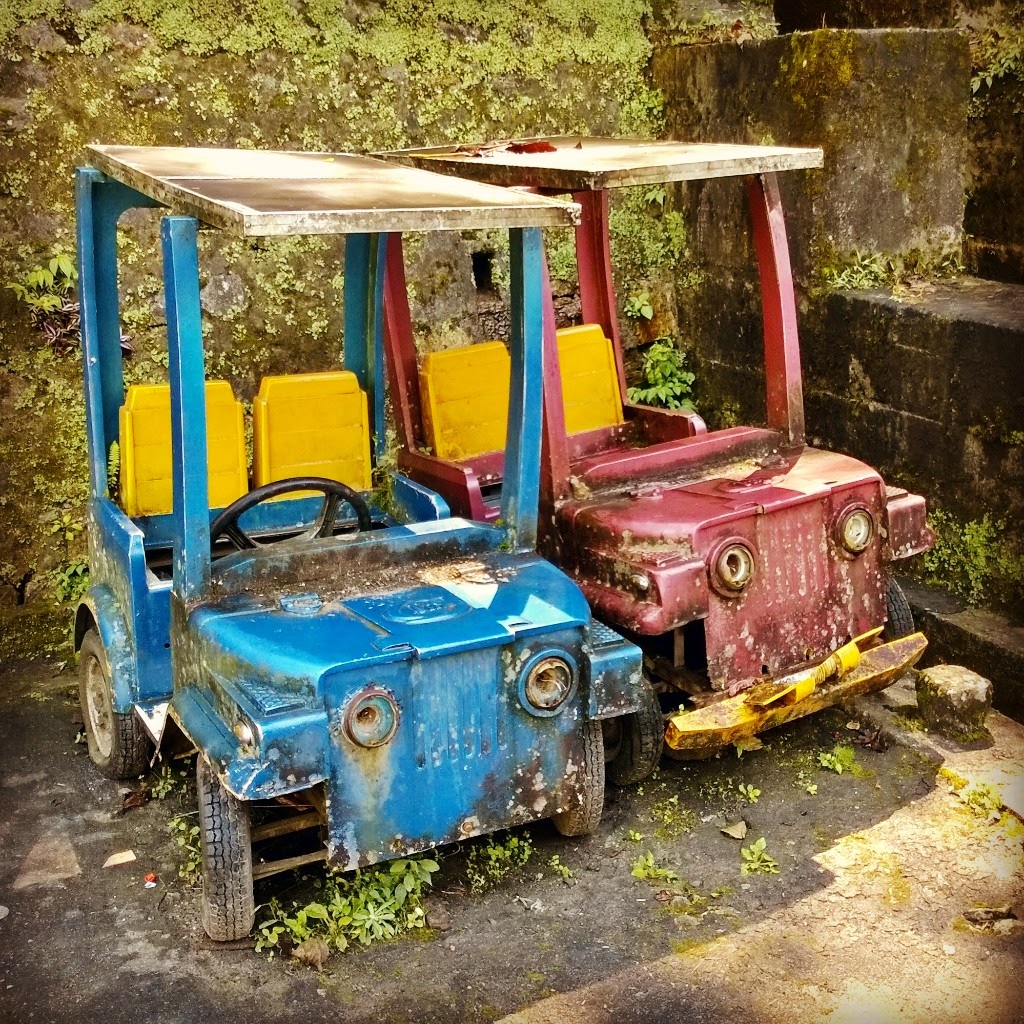Perhaps my most abiding memory of last week's trip to Darjeeling and Sikkim is
that of taxi drivers obsessively cleaning their cabs. Having spent much of my
life avoiding rides on New Delhi's smelly cabs, it was good to see people
caressing their vehicles as they hosed them down.
As we drove around Darjeeling to take in its sights, our driver took advantage
of every halt to flick imaginary insect carcasses off the windshield. As we
walked back from a temple complex in the nearby town of Kalimpong, we found our
cabbie scaling the front wheel, trying to reach with his duster what appeared
to be an unblemished portion of the SUV's roof.
And he wasn’t the only one. Cab drivers in the region seemed to spend a lot of
their quality time tending to their cars’ needs. On the drive to Gangtok, we
stopped for steamed chicken dumplings at a roadside shack in Lopchu. Our driver
Sohan Lama took a break too, but not before instructing a labourer to soap down
the car. I am not sure if any money changed hands, but I wouldn't be surprised.
Of our many cabbies during the week-long visit to India’s east, Lama was perhaps
the most interesting. A Nepali Buddhist from Sikkim, he supplemented his income
with a store that sold herbal medicines championed by Baba Ramdev, a
saffron-robed yoga guru adored by millions in the country.
Lama, an amiable man in his 40s, beams even more when talking about his teenage
son, who’s training at a prestigious football academy set up by Bhaichung
Bhutia, arguably India’s most famous player.
Lama’s son may have been among the dozens of excited pupils we saw, rather heard,
at Gangtok’s Paljor stadium adjacent to our hotel. I say this with no particular
joy, for this army of shrieking children invaded my sleep each morning and
pried my eyes open.
I endured other early risers in Mirik, a hill station in West Bengal. This time, a flock of pigeons rustling
up avian buddies for a 5 a.m. conference outside my window. But not one bird was
as irritating as the Bengali tourist seated behind me on Darjeeling’s heritage
toy train. Each time the clouds parted and we caught a glimpse of the majestic
Kanchenjunga peak in the distance, this woman screeched the equivalent of “Look
there, can’t you see? There, there, not there, there,” in her native tongue,
till everyone in her extended family had witnessed the spectacle. There was
little to choose between her shrill voice and the blaring train horn - both were
enough to cause a headache.
What was music to my ears was a pair of Gorkha teenagers rapping to Kanye West in
the Himalayan village of Sukhia Pokhri. A friend and I were waiting in an empty
restaurant for Lama, who was stuck in traffic several kilometres away in Ghum,
home to India's highest railway station. The siblings trooped in and fiddled
with their mobiles for a bit before breaking into song karaoke-style with the background
music on at full blast.
An old woman walked in and apologized to us, saying the wannabe hip-hop artists
were her grandsons - they responded to her censure with gap-toothed smiles. “This
is what the new generation does,” the woman said in Hindi, clutching her
forehead in a gesture of disdain, but with a smile trembling at her lips.
_______________________________________
After several hours of a back-breaking ride
on barely-there roads and a dash through the yak-infested banks of the Tsomgo
lake, our shared jeep finally reached Nathu La - a mountain pass at an altitude
of more than 14,000 feet - only to be told by military guards that our mobile
phones couldn't be taken past the entrance. We dumped our bags and smartphones
in the jeep, and trudged onwards in a sulk that lasted till we caught sight of
the Chinese soldier just across the barbed wire. He smiled and walked past us, brazenly
taking a photo of the milling tourists. I shook hands across the border as we attempted
to engage him in conversation. "I don't talk," he said, and with that, he walked
away to his post.
(Photos clicked on my Nokia Lumia 925 with some having added Instagram effects.)
 |
| The stupa at Duddul Chhoedten in Gangtok, Sikkim |
 |
| A red panda at the Darjeeling zoo |
 |
| A pet dog at the China bazaar, on the way to Nathu La |
 |
| Yak on the loose at Tsomgo lake on the way to Nathu La |
 |
| A cloud trapped between two hills in Sikkim |
 |
| A tree stands forlorn near a Darjeeling tea garden |
 |
| Tea gardens at Mirik, West Bengal |
 |
| Rusted vehicles at the BanJhakri waterfalls park near Gangtok |
 |
| Young monks play football at a monastery in Kalimpong |
 |
| Young monks polish shoes near to the Mirik monastery |
 |
| A double rainbow on the way down from Nathu La |
 |
| Cable car dustbin at Darjeeling |
 |
| This dog got a bird's view of Darjeeling |
 |
| A couple of frisky goats on a rock on the way to Darjeeling |
 |
| A crystal clear view of the Kanchenjunga from our Darjeeling lodge |
































































